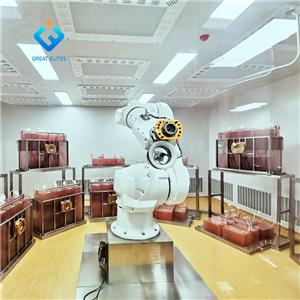effects of long-term culture on biological characteristics and RNA profile of human bone marrow mesenchymal stem cells
Molecular therapy nuclear acids: effects of long-term culture on biological characteristics and RNA profile of human bone marrow mesenchymal stem cells
2021-10-28 reported that in vitro expansion is a necessary process before the application of mesenchymal stem cells (MSCs). Functional and genomic stability play a key role in stem cell-based therapies. However, the exact expression and coexpression profiles of coding and non coding RNAs in aged human bone marrow mesenchymal stem cells (BM MSCs) in vitro are not clear. In this study, we observed the changes of morphology, immunophenotype, proliferation, differentiation and immunoregulatory ability of bone marrow mesenchymal stem cells in passage (P4, P6, P8, P10 and P12).
RNA sequencing showed that 439 mRNAs, 65 long non coding RNAs (lncrnas), 59 microRNAs (miRNAs) and 229 circular RNAs (circrnas) were differentially expressed (DE) in p12 compared with P4, and the trend of P6 was similar. Gene Ontology (go), Kyoto Encyclopedia of genes and genomes (KEGG) and gene set enrichment analysis (GSEA) have found several important biological processes and pathways, including binding, osteogenesis and Wnt and PPAR signaling pathways.
Cerna network of circrna miRNA mRNA interaction
Mesenchymal stem cells (MSCs) have self-renewal ability, multi-directional differentiation potential, immunosuppressive characteristics, nutritional effect and paracrine function, and have broad clinical application prospects in cell therapy and regenerative medicine. Since the discovery of MSCs in bone marrow (BM) in 1966, various tissues, including cord blood, UC, synovium, adipose tissue, dental pulp and skeletal muscle, have been reported as the source of MSCs. However, among different sources, bone marrow remains the most characteristic source of MSCs by far.
The authors designed a study to analyze the effects of in vitro expansion on the morphology, immunophenotype, proliferation, differentiation and immune regulatory capacity of MSCs. Meanwhile, the authors analyzed the changes of mRNA, miRNA, lncrna and circrna expression profiles during culture and in vitro propagation. The objective of this study is to deeply understand the molecular mechanism of MSC aging, which may have an impact on the quality control of MSC preparations, and find out strategies for rejuvenating aging MSCs, so as to broaden the therapeutic application of MSCs.
Original text: Shan Wang et al. Effects of long term culture on the biological characteristics and RNA profiles of human bone row derived metabolic stem cells Mol Ther Nucleic Acids. 2021 Aug 19; 26:557-574. doi: 10.1016/j.omtn.2021.08.013.




